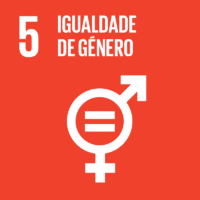Ciência-IUL
Publicações
Descrição Detalhada da Publicação
Remarriage and stepfamilies in the 'Western Islands' of Europe: the rural Azores of Portugal in the 18th and 19th centuries
Título Livro
Stepfamilies across Europe and Overseas, 1550-1900
Ano (publicação definitiva)
2024
Língua
Inglês
País
Estados Unidos da América
Mais Informação
Web of Science®
Esta publicação não está indexada na Web of Science®
Scopus
Esta publicação não está indexada na Scopus
Google Scholar
Esta publicação não está indexada no Google Scholar
Abstract/Resumo
This book emphasizes diverse perspectives on the new and expanding history of stepfamilies in Europe and some of its overseas territories from 1550 to 1900.
The chapters examine the life stages within stepfamilies from the half-orphans and illegitimate children who experienced the introduction of a stepparent to how parent–child and step or half-sibling relationships shifted and changed with living arrangements and mobility within villages or to towns and overseas. Several historical demography chapters establish the frequency and types of stepfamilies in Western and East Central Europe – whether a father-stepmother couple, a mother-stepfather union, a parent with an illegitimate child. Other themes include the effect of parental loss on child survival; how a stepparent influenced a child’s wellbeing with caregiving and contributions to the household economy; emotional bonds through letters and gift-giving; step–relatives who marry their close kin; and how property and inheritance regimes shaped stepfamily patterns.
Stepfamilies across Europe and Overseas, 1550–1900 will appeal to researchers and students interested in the history of family, marriage, and society. The chapters in this book were originally published as a special issue of The History of the Family.
Agradecimentos/Acknowledgements
--
Palavras-chave
Stepfamilies,Azores,illegitimacy,widowhood,Portugal
Contribuições para os Objetivos do Desenvolvimento Sustentável das Nações Unidas
Com o objetivo de aumentar a investigação direcionada para o cumprimento dos Objetivos do Desenvolvimento Sustentável para 2030 das Nações Unidas, é disponibilizada no Ciência-IUL a possibilidade de associação, quando aplicável, dos artigos científicos aos Objetivos do Desenvolvimento Sustentável. Estes são os Objetivos do Desenvolvimento Sustentável identificados pelo(s) autor(es) para esta publicação. Para uma informação detalhada dos Objetivos do Desenvolvimento Sustentável, clique aqui.

 English
English



